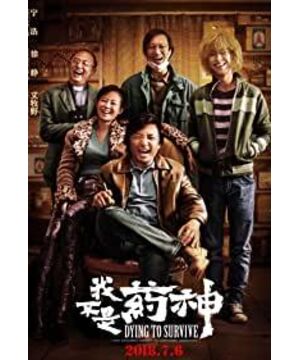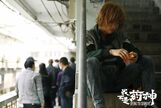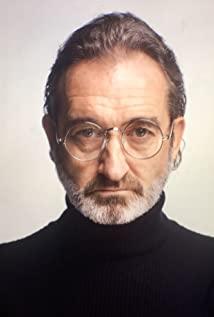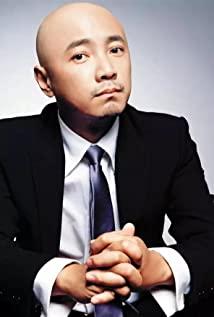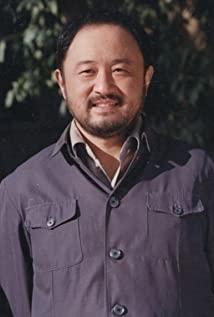1.
In just a few days, "I'm Not the God of Medicine" has become the biggest hit at the box office of this year's Chinese movies. This film about a little civilian who smuggles cheap generic anti-cancer drugs from India to "treat the disease and save the life" has aroused strong repercussions and warm welcome among ordinary audiences. It seems that only "Wolf Warriors 2" a year ago can be comparable to it. .
From the professional point of view of film practitioners, "I Am Not the God of Medicine" breaks through the much-criticized implicit "Chinese film censorship system" in several key directions. First, from a strictly legal point of view, the film's lauded protagonists and supporting characters are unmistakable criminals. Since 2000, it has been difficult for mainland Chinese contemporary realism feature film projects with criminals as the first protagonists to actively approve of them to pass the project review, not to mention the dragon logo to appear on the big screen in the theater. superior.
Secondly, in "The God of Medicine", we have seen the most controversial image of the people's police in Chinese films in the past 20 years: they are either impersonal and rigid, or even stand on the side of capital that appears in a negative image in the film; or they disobey their superiors. Will and sympathy for smugglers who break the law. Due to the special setting of the plot of "The God of Medicine", the public security police, who usually represent authority, law and justice, cannot avoid the "abnormal" negativity of their screen image no matter which side they oppose each other. This is also a bold and breakthrough approach.
Finally, no matter how passionately the film portrays the hero's noble spirit of sacrificing himself to save the patient to convey the emotional friendship between people, it inevitably exposes the economic situation under the imperfect social medical welfare system. The almost brutal desperation for the stretched terminally ill. And such a performance is hard not to let the audience connect the root cause of the problem with the relevant system at that time, especially similar scenes are still being staged in major public medical institutions today. The implicit reference to the superstructure it produces can also be said to be unprecedented in Chinese films.
From this point of view, "The God of Medicine" is almost a phenomenon-level film with indicative significance, which means that many unwritten creative barriers before it seem to be possible to loosen. But is this a sign that censorship standards are relaxed, or is it a sign that some new creative guiding ideology is finally getting the green light?
2.
The plot of "Drug God" has several obvious references: In terms of subject matter, it clearly overlaps with the 2013 Oscar-nominated film "Dallas Buyers Club" - both of which are based on smuggling drugs to treat terminal illnesses. The main plot; but in terms of the growth trajectory of the characters' inner personality, it deeply draws on Spielberg's "Schindler's List": Cheng Yong started out by purchasing Indian generic anti-cancer drugs to make money, and then evolved into a "Lei Feng" who helped the poor with his own money This type of character coincides with Schindler's mental journey from a selfish businessman who made a fortune in war to saving his family from bankruptcy. But on the other hand, "The God of Medicine" also has the unique tone and character setting of Chinese movies. To a certain extent, it has intrinsic similarities with "Wolf Warrior 2", which has become a box office legend in 2017. .
The protagonist Leng Feng in "Wolf Warrior 2" wanders in a foreign land and single-handedly saves the lives of children, women and compatriots in the war zone. It should be noted that Leng Feng has always been a "grass civilian" from outside the system. He has been portrayed as a civilian hero with a "grassy" energy, almost self-confessed to save his compatriots in a foreign country and maintain justice. The "diplomatic level" mission supports his actions with a sincere sense of moral justice, self-mission and personal heroism. It is also the process of jumping from a small person who was unfairly treated outside the system to a lone hero to save his compatriots and carry forward the country's prestige, which deeply resonated with many audiences, and thus invested in emotions that are loaded with great energy.
Coincidentally, Cheng Yong in "The God of Medicine" is also a small person from the folk. His original intention of smuggling imitation anti-cancer drugs was only because he could not pay the rent because of financial constraints, and at the same time he urgently needed to raise money for his father's surgery. However, his ideological awareness and moral standards have made a qualitative leap in the process of carrying out such "illegal activities", from "making money" to "saving people", he is willing to pay his own money and even risk being sentenced to prison. Smuggling cheap generic drugs for cancer patients.
If at the beginning of the film he was just a small businessman greedy for personal gain, then by the end of the film, he has become a righteous "hero" who sacrificed his freedom in exchange for the lives of others. His simplicity with the sacrificial spirit of the bottom of the society and the feelings of saving other people's lives are no less than Leng Feng, another film character outside the system who saves his compatriots and promotes the prestige of the country in the smoke of war. The difference between the two is likely to be just one piece of literature and one military force, and they have taken different actions according to the difference in the type of film.
3.
Lu Yong, the prototype character of "The God of Medicine", is a chronic myeloid leukemia patient himself. His business behavior of purchasing generic drugs overseas for more than ten years has a strong self-help motive. "Medicine Man" is also controversial.
An article titled "Should the Board Fight Pharmaceutical Companies" published on "Southern Weekend" also pointed out the deep reason behind the sky-high price of anticancer drugs: the research and development costs are extremely expensive, and the purchasing and sales of generic drugs are likely to dampen regular pharmaceutical companies The enthusiasm for research and development hinders the birth of new drugs with better efficacy. At the same time, the daigou group is not a clear and transparent spring, and its internal interest entanglements are also difficult to discern.
But the creators of "I'm Not the God of Medicine" are not prepared to incorporate these realistic issues with indistinguishable colors into the film. First of all, they separated the protagonist Cheng Yong from the patient's identity, making him an "outsider" who began to passively participate but eventually took the initiative. Unlike Lu Yong in real life, he joined the team of purchasing medicines because of the urgent need for self-help. It was his sympathy for the patient and his passion for saving lives that supported him to the last moment when he stepped into the prison van. This is undoubtedly the key to shaping Cheng Yong's image as a "savior".
Second, they radically simplified the complex relationship between the system, pharmaceutical companies, and patients, and "crucified" the pharmaceutical companies to the shameful pillar of greed, appearing as the opposite of Cheng Yong and other positive figures. It is in the confrontation with such a wealthy and ruthless capital that Cheng Yong, a group of characters from the bottom of the society, have the aura of "grassroots heroes".
Reduced reality is no longer reality.
It is difficult to say whether "The God of Medicine", which seems to be closely related to real issues, really has an objective narrative of realism, but it has a feeling of romantic realism. In the skillful expressions of "disgraceful", "sensational" and angry expressions of social injustice, the world is divided into two parts, black and white, good and evil. Cheng Yong and his friends stepped forward, found a unique way to resist "power" and redeem themselves, and finally achieved the glorious image of "grassroots hero".
Consistent with "Wolf Warrior" Leng Feng, the positive characters in "The God of Medicine" also break through the facial recognition of heroic characters in previous mainland movies. They are no longer authoritative and orthodox, and do not eat human fireworks. He is a hero in the restrained system, and is full of the behavioral characteristics of small people at the bottom of the society: drinking, going to nightclubs, watching dances, running dirty jokes, and seeing money from time to time. It is precisely the image of a character who puts down his body and is popular in the market to arouse the empathy of working-class audiences outside the system, and makes them have a strong sense of identity with the character. "The behavior hit the festival applauded.
4.
Zhang Changlin, a liar who sells counterfeit medicines, said in the film "There is only one kind of disease in the world, poor disease" is the core sentence of "The God of Medicine".
Today, when the social class classification is seriously solidified, the vast majority of ordinary workers who are suppressed at the bottom of the society no longer have the possibility of upward mobility. The most obvious sign of dividing different classes is money. Because of poverty, workers at the bottom of the society cannot afford to go to school or live in housing, and even as depicted in "The God of Medicine", those who are sick and have no money for treatment can only wait to die. The difference determined by money makes a large number of people firmly fixed in a weak position and cannot change their destiny.
For this part of the audience with class attributes, what can give them the most hope is the "counterattack" of the weak on the screen.
"Wolf Warrior 2" let an ordinary veteran who was thrown out of the system to go to a foreign battlefield alone, and rescued a large number of compatriots in distress by himself. This is a shocking step in the counterattack of the Chinese screen. Its huge box office It has successfully proved the incalculable commercial value of such a "counter-attack".
"The God of Medicine" lets a down-and-out sex health product peddler "collaborate" with a group of impoverished leukemia patients who use abnormal means to fight against the wealthy and regular drug dealers, and use their wisdom to purchase drugs overseas and establish a retail network, which not only continues The patient's body even made a lot of money.
On the surface, what we seem to see is a "Lei Feng" figure in the new era who has completed his own growth in the process of treating leukemia patients, but inside this is a small person leading a disadvantaged group with wisdom, courage and sacrifice. Challenge the most deadly "poor disease" and make bold attempts to transcend the bottom-level counterattack again and again. They roamed outside the conventional system, used abnormal and even illegal means to solve problems, and demonstrated in various unimaginable ways to the money power bodies in another class. Although the protagonist Cheng Yong paid the price in the end, this kind of Don Quixote-style behavior of "grass-roots characters" counterattacking the superstructure made many viewers who suffered from "poor diseases" and had no cure for a long time gave a hard blow The evil anger accumulated in his chest was solidly refreshed mentally. At the same time, his tragic ending has earned the viewers tears of sympathy and empathy.
It is said that "I'm Not the God of Medicine" is a "sensational" movie, but when you see the scene where the prisoner van is sent to the "Ten Mile Street" at the end, you can faintly realize an upgraded "incitement" emotion. It is not only a counterattack trumpet to the opposing classes, but also a display of the silent power of the people at the bottom on the screen. So far, it is difficult for us to say whether "The God of Medicine" is really a realist work. Although it is born out of real events and characters, it has evolved into a novel with surging idealistic emotions, just like "Wolf Warrior 2". Human mythology.
Most of the people who have "read" this myth have been infected by the straightforward class feelings of its connotations, convinced by its ethical and moral weight, and excited by its unbridled agitation, which has become its firm defender. By. And any voices questioning it are likely to stand on the opposite side of the "people" and end up in the same fate as the doubters of "Wolf Warrior 2".
5.
The surprising loosening of censorship standards for "Yao Shen" can also be seen as some reasons.
The success of "Wolf Warrior 2" in 2017 has made us suddenly discover the powerful force of this hidden "counter-attack" folk thought. And the eruption of "The God of Medicine" in 2018 made it an objective existence that cannot be ignored.
On the one hand, part of the official discourse mechanism has become increasingly rigid and outdated because it is too orthodox and has lost its appealing value. great universal power. The accommodation of it represents a subtle change in the tone of a certain guidance of the official discourse mechanism. Although some seemingly irreversible superficial core principles have been abandoned for this purpose, what has been exchanged is the inclusion, promotion, guidance and reconstruction of the mechanism of folk discourse. We have seen its power in the past, and incorporating it into the official discourse system can not only update the vocabulary and thinking of this system, enhance its effectiveness, but also achieve immeasurable commercial success. This is clearly a win-win situation for everyone.
As for Chinese commercial films, they constantly create vivid, low-level heroes to counter-attack myths with a realistic attitude, in order to meet the eager expectations of the audience outside the system, and thus continue to create box-office hits. a obligatory task that must be completed.
View more about Dying to Survive reviews


